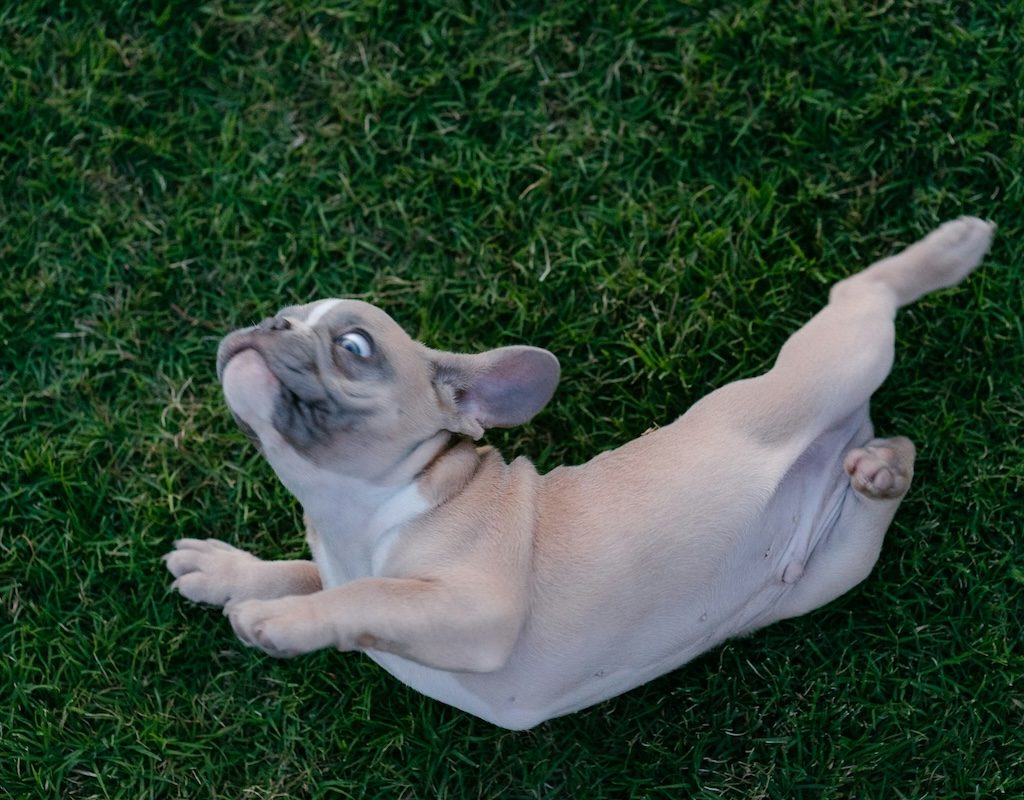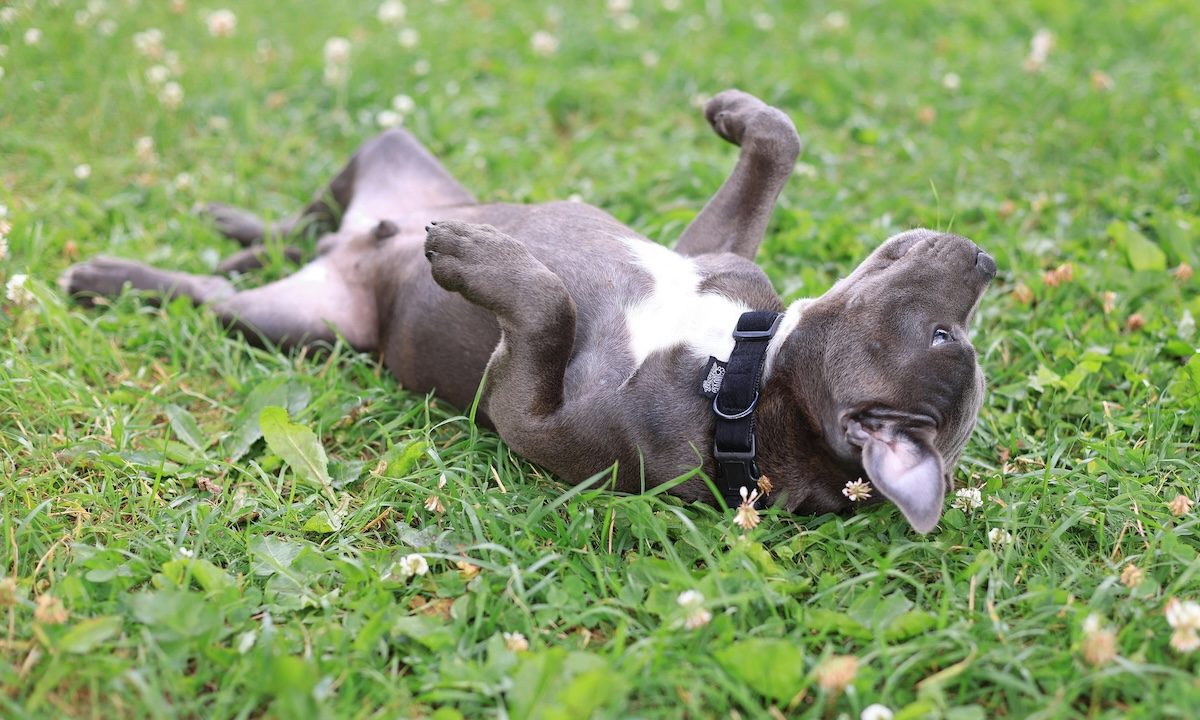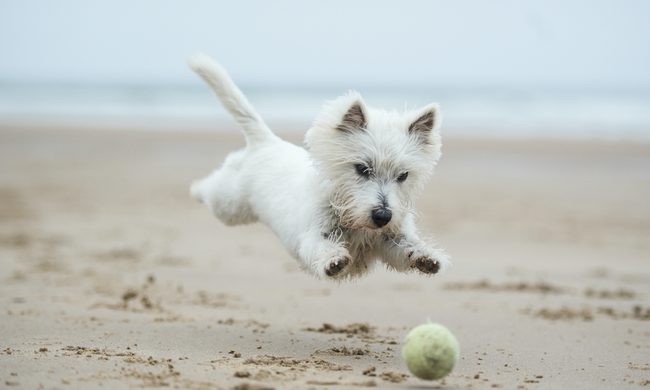Whether you grew up in a barn or not, you’ve likely heard the phrase, “Happy as a pig in mud.” For the unfamiliar, the euphemism describes someone in their element and living their best life. For example, a dog in a sun puddle or on a play date with their best furry friend (or you). However, you may find your dog is as happy as a pig in mud when they’re rolling in something even dirtier: Poop.
Why do dogs roll in poop? If your dog is a fan of this behavior, they may wonder if this question is rhetorical. For some dogs, rolling in poop is seen as natural and necessary. That doesn’t mean you have to allow the behavior, but understanding the reasons lets you give your dog some grace. Here’s why dogs roll in poop and how to make them stop.
Why do dogs roll in poop?

You thought the poop would stay outside after once your pup finished potty training. Yet, your pet has made a habit of rolling in poop. What gives? Probably one or more of these reasons.
Masking scent
You may know that cats are natural-born predators, and they often let you know they’d still like to be by chirping at birds. However, your sweet sofa wolf also comes from a long line of hunters. People believe that wild dogs roll in poop to cover up their scent, making prey less likely to know they’re coming. However, some studies show wild animals are more likely to roll in novelty scents, like car oil or perfume, instead of poop.
Smell preferences
Get a whiff of this one: Your dog may like the smell of poop. We know — this reason reeks (literally and figuratively). You may be extra puzzled when you consider a dog’s sense of smell is more powerful than a person’s. However, just like you and your best human friend may disagree on the best pizza toppings, you and your favorite furry animal may not see eye-to-eye (or nose-to-nose) on what qualifies as a “good smell.” Your dog may liken rolling in poop to putting on scented body wash, perfume, or cologne and may roll around in other rancid-smelling items for the same reason.
To help feed the pack
Dogs have their own language, and poop-rolling may play a role. As pack animals, dogs understand that sharing is caring. In the wild, they use smell to let their pack mates know where they’ve been after a successful hunt. These animals can go to the same place and — hopefully — achieve the same result: Finding something good to eat. Coming home smelling like poop from a specific spot is one way to help pack members survive.
Mark territory
Dogs may roll in poop for another reason related to communication: To send a message that a particular spot is theirs. Rolling around leaves behind a scent that isn’t merely poop but your dog’s unique smell. Other dogs will smell your pup and might decide to play, pee, or poop elsewhere because that pile of poop and pad of grass belongs to someone else.
How to get your dog to stop rolling in poop

Getting your dog to stop rolling in poop can be challenging, given the behavior may be natural. However, you can nix the habit with patience, perseverance, and bribery.
- Leash your dog. Keep your dog on a leash for park trips and walks. Avoid letting them out into the backyard until you’ve cleaned up any feces belonging to them, another pet, or wild or stray animals that make their way to your property.
- Lean into “leave it.” This command is clutch for keeping a dog from eating toxic food — and rolling around in smelly things like poop. When teaching the command to your dog, reward good behavior with high-quality treats.
- Learn your dog’s cues. Even dogs that learn “leave it” and that rolling in poop is a no-go may start giving into temptation from time to time. Learning the body language your dog uses before they go in for a poop roll can help you know when to redirect or move them gently away from the waste.
- Get help. If nothing is working, speak with a trainer. They can assist with a customized approach. Your vet can help refer you to one.
While gross, rolling around in poop is a normal and natural dog behavior. They may take to the habit to mask their scent for hunting or communicate a food source, much like some researchers believe wild canines do. They may also wish to mark their territory. Finally, some dogs like the smell — strange but true. Rolling around in poop can bring unwanted smells and germs into your home, but you can likely train a dog to stop. Leash your dog on walks, and use positive reinforcement, like treats, when teaching them to “leave it.” Keep temptation to a minimum by inspecting and cleaning any applicable yards before letting your pup out, and learn your dog’s body language. If they appear ready to start rolling in smelly things, redirect them.





